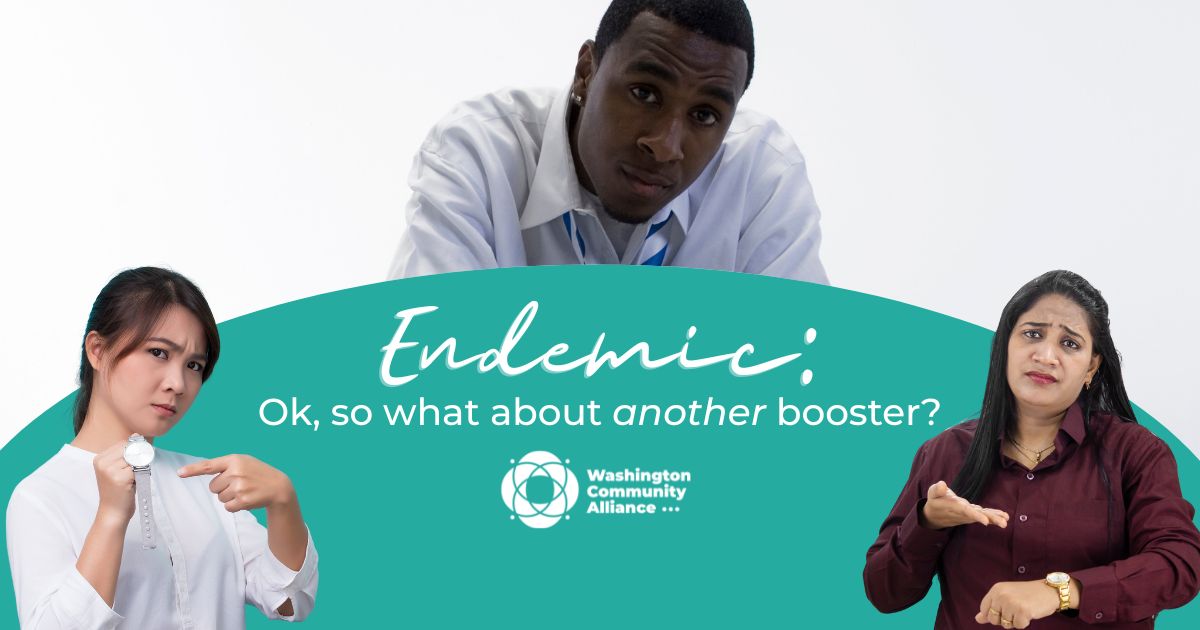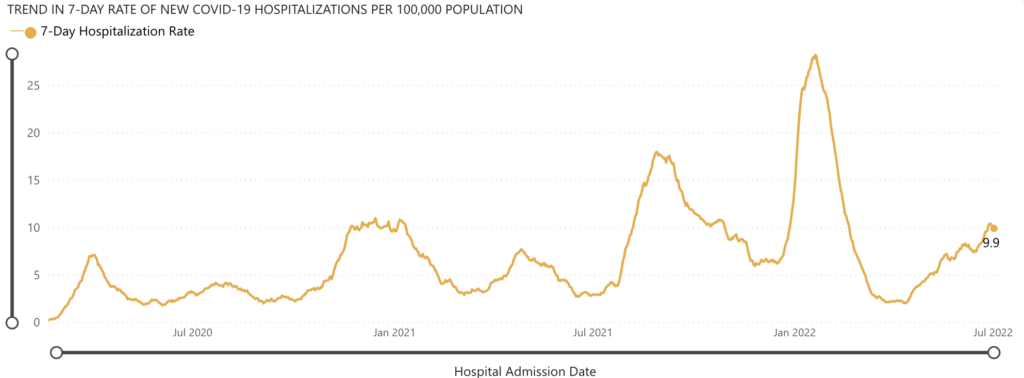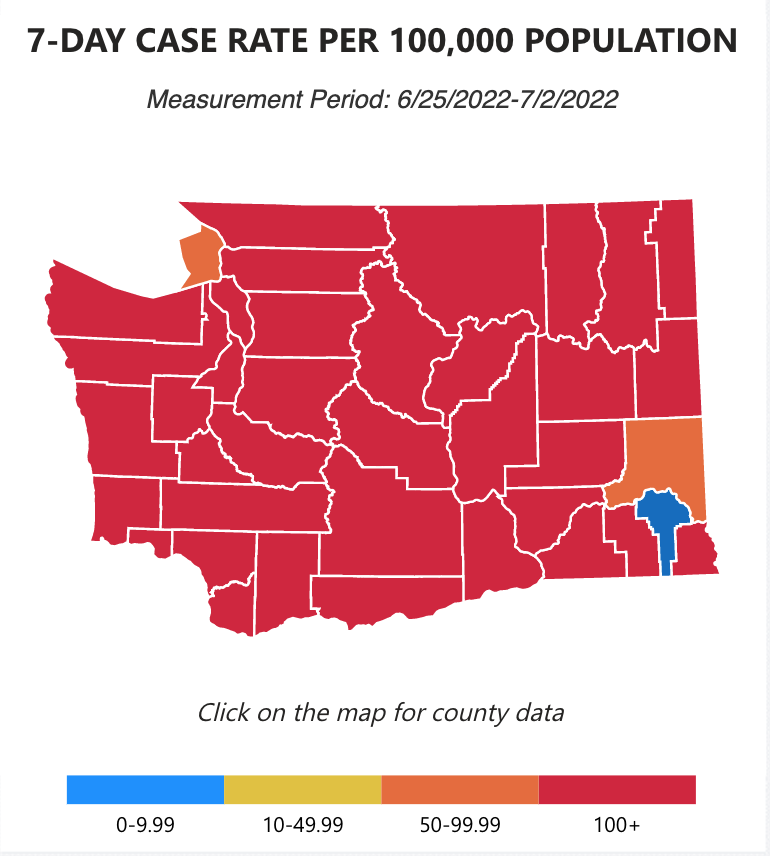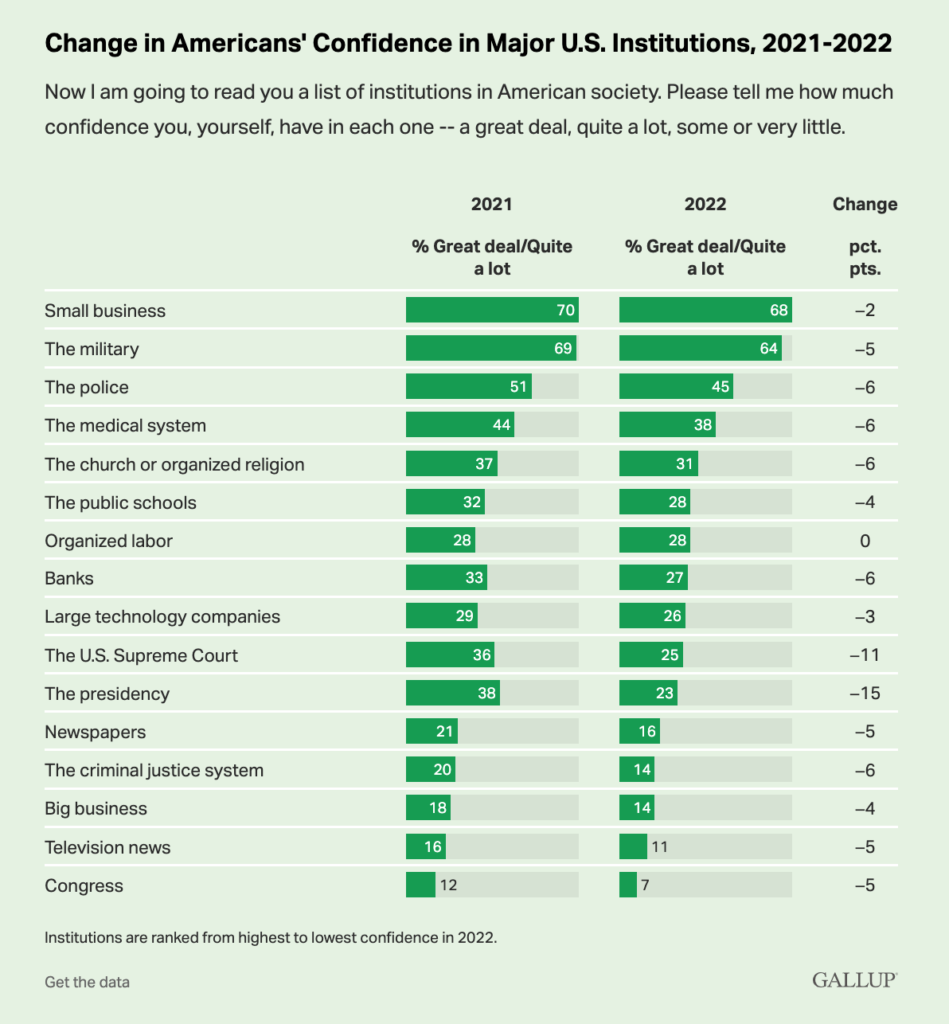
Friends—
The highly infectious Omicron sub-variants, BA.4 and BA.5, are making their way around Washington. (Boy do we know it; Some of our staff have gotten sick!)
Unfortunately, hospitalizations are back on the rise—our “plateau” from two weeks ago did not hold. The death rate has slightly increased too, and now is at 1 person per 100,000 people every day. The good news is, the death rate is still 1/6th what it was during the Omicron peak of January 2022 thanks to increased protection from vaccines and improved treatments, like the life-saving antiviral Paxlovid.
Amidst this latest wave, there’s renewed energy to approve a 2nd booster (or 4th total COVID shot) for all adults. It will certainly help those who receive it, but will the booster make a real difference in the overall pandemic?
📊 Washington’s COVID-19 Weekly Snapshot
COVID cases 😷
Hospitalization rates 🏥

As we mentioned up top, COVID’s Omicron BA.4 and BA.5 variants are spreading around Washington and the country. The most worrying trend is Washington’s own rise in hospitalizations, which is likely a factor of the overall case count being very high even though we don’t have good data on case counts anymore since many people test at home but don’t report or don’t test at all these days.
Public health officials stated that while BA.4 and BA.5 have the same level of severity as previous Omicron variants, they’re more infectious and better evade immunity.
We don’t have a clear idea of when this wave will end. As always, we urge you to take reasonable precautions where possible, especially wearing a mask in crowded indoor areas and even when hanging out with friends outdoors or in well-ventilated areas.
🤔 2nd Boosters: Good, but will they make a difference in the overall pandemic?
Let’s get one thing straight: Boosters are good. Multiple studies show that boosters reduce the risk of Omicron’s severe illness and hospitalization. The linked studies aren’t new; They were conducted months ago on Omicron and on other previous variants.
With a rapidly-mutating virus like COVID, we don’t yet know the 2nd booster’s effectiveness against the now-dominant BA.4 and BA.5 variants. There is also a possibility that if vaccine makers produce “bivalent” boosters—meaning they’d include protection against the original Omicron and BA.4 and BA.5—there might be a new variant by the time that booster arrives for everyone.
Regardless, boosted individuals (people with three COVID vaccinations under their belt) are less likely to experience hospitalization from BA.4 and BA.5. Whenever the 2nd updated booster shot (making a total of four shots) is produced, it will have some degree of positive effect in preventing severe illness from future variants.
Currently, health departments are only recommending a 2nd booster for adults over 50 years old and for immunocompromised people over the age of 18. The Biden Administration and the FDA are making it a priority to approve a 2nd updated booster for all adults, with The Washington Post reporting that it may occur in the next two weeks.
But even with this upcoming approval, it’s not clear it will make much of a difference in the overall spread of COVID, even if it helps each individual who decides to have it. If current trends hold, the number of Americans that would get a second booster (if one is authorized for all adults) is likely to be a smaller share of the population. Right now, only half of fully-vaccinated Americans (those eligible) have received the first booster shot (so their 3rd total). As for the eligible 50+ year-old Americans who could have a second booster, only just over a quarter decided to. Our own state is similar: Only 57.7% of eligible Washingtonians (ages 5+) have received a single booster shot (or 3 total shots).
Why might people be reluctant to get their 1st booster, let alone their 2nd? There are many reasons, but the overriding factor is social distrust.
Americans’ trust in major institutions and each other has been trending down for decades, but it’s now reaching an all-time-low since the records began.
According to the recent Gallup poll depicted above, the US medical system lost 6 percentage points in trust this year, putting it at 38%. That’s still better than trust in The Presidency, which is down to 23%. And Congress, which is down to 7%. With messages about 2nd boosters largely coming from Biden and the medical system, it doesn’t exactly look like people will be too receptive.
These Gallup findings are similar to a recent Pew Research poll that shows middling and declining faith in most institutions’ responses to the pandemic—besides local hospitals. People who believe the CDC is doing an “excellent” or “good” job responding to the pandemic declined from 79% in March 2020 to 52% in May 2022.
In our next Endemic, we’ll share our take on why social trust and faith in institutional pandemic response has declined so much.
🙏 COVID-19 Resources
- Order 8 free, at-home COVID tests (It doesn’t matter if you’ve placed a previous order through the same site.)
- Order 4 free at-home COVID tests (note: any single address can only be used one time)
- Additional option to order free at-home COVID tests (WA only)
- Find vaccines near you
- Testing locations
What do you think? Have any questions? Tweet us your thoughts @WACommAlliance.
Keep up on Washington’s latest COVID-19 trends, new research, and more through our Endemic newsletter.



